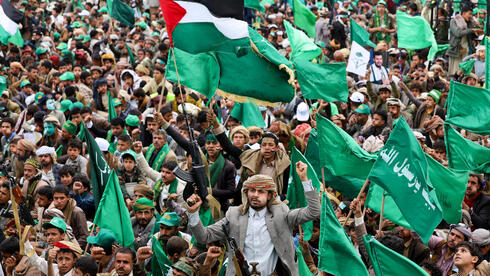The Houthis in Yemen, backed by Iran, are no longer just a regional nuisance. They have evolved into a global threat, targeting Israel with missiles and drones, while disrupting vital shipping lanes in the Red Sea and Bab el-Mandeb. Their attacks threaten energy security and global trade, making this an international crisis that demands urgent, coordinated action.
The first step is to neutralize the immediate threat through decisive and targeted military action: Precision strikes to destroy launch sites, weapons depots, and command centers. Maritime interception to stop drones and missiles before they reach populated areas or key trade routes.
Cutting supply lines by interdicting Iranian shipments and dismantling local production facilities for drones and rockets. Cyber warfare to disrupt the Houthis’ communications and control systems. Israel, leveraging its advanced defense systems like Iron Dome and David’s Sling, must integrate closely with Gulf states’ radar networks and U.S. assets to create a seamless regional shield.
Freedom of navigation is a shared international responsibility. A multinational naval coalition, including Israel, Gulf states, the U.S., U.K., France, and others, should patrol and secure the Red Sea and Gulf of Aden. This coalition must operate under clear UN-backed rules of engagement to ensure the safe passage of oil and goods.
Military action alone cannot guarantee lasting stability. Smart sanctions must target key individuals, financiers, and suppliers in the Houthi network. Financial tracking should disrupt hawala systems and illicit money flows sustaining the militias.
Conditional humanitarian aid must be funneled through a Gulf-UN mechanism to prevent diversion by the Houthis. Gulf states, especially Saudi Arabia and the UAE, can leverage their economic power to pressure Iran by limiting cooperation until its proxy attacks cease.
 Munir Daher
Munir Daher
Israel: Lead in intelligence, precision strikes, and integrated air defense. Gulf States: Provide bases, funding for humanitarian corridors, and regional political leadership. United States: Offer naval and air cover, enforce sanctions, and provide high-tech interception systems. Europe: Contribute naval forces and enforce strict export controls on dual-use technology.
Houthi attacks reduced by 80% or more. Restoration of normal shipping flows and reduced maritime insurance costs. Verified halt of Iranian arms shipments. Launch of a credible local Yemeni political process that weakens Houthi dominance.
To sum up, the Houthis are not just a threat to Israel or the Gulf; they are a global menace to energy markets and international trade. Through a combined strategy of precision military action, economic pressure, and international cooperation, the world can dismantle this network of terror. Failure to act decisively will embolden Iran and its proxies, destabilizing not only the Middle East but the entire global order.
